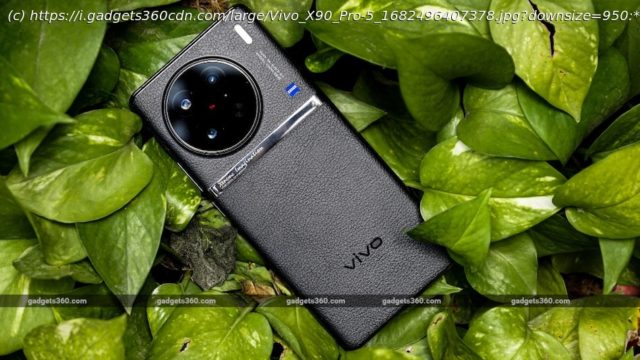Vivo X90 Pro joins the elite Android flagship smartphone group with a 1-inch camera sensor. The new Vivo flagship comes with a Zeiss-tuned triple-camera setup. It also gets a MediaTek Dimensity 9200 SoC and a 4,870mAh battery. Read our full review to know if it’s worth your time.
The Vivo X90 Pro is the latest Android flagship smartphone to launch in India. The company has also launched the Vivo X90 along with it. In India, the X90 Pro is positioned as the successor to the Vivo X80 Pro (Review), since it is priced upwards of Rs. 80,000. Technically, the Vivo X90 Pro+ would be the true successor to last year’s X80 Pro, but Vivo hasn’t announced that for other markets other than China. With the X90 Pro, Vivo is now the second smartphone brand in India to launch a phone with a 1-inch camera sensor. The Vivo X90 Pro (and the X90) are the only two smartphones in India currently to feature the flagship MediaTek Dimensity 9200 SoC.
With all that is on offer, should you consider buying the Vivo X90 Pro? Here is our full review to help you decide.
Vivo has launched the X90 Pro in India in a single storage option. The phone packs 12GB of LPDDR5X RAM and 256GB of UFS 4.0 storage, and is priced at Rs. 84,999. It competes against the likes of the Samsung Galaxy S23 (Review), iPhone 14 (Review), and the Xiaomi 13 Pro (Review). The X90 Pro is about Rs. 5,000 more expensive that last year’s X80 Pro. However, with the pre-booking offers, you could get it for as low as Vivo’s advertised price of Rs. 76,999.
The Vivo X90 Pro has received some design tweaks over last year’s model. The phone uses vegan leather for the rear panel, and the textured surface does help offer a better grip and in-hand feel. The choice of materials also ensures that the X90 Pro does not attract any fingerprints or smudges. The phone also gets an IP68 rating for water and dust resistance.
There is a massive camera module on the back of the X90 Pro for the triple-camera setup. The LED flash along with some text and the Zeiss logo are placed at the top-right corner of the rear panel. What reduces the premium appeal a bit for me is the shiny chrome strip below the camera module which has the “Xtreme Imagination” text on it, in a not-so flattering font.
The metal frame is curved on the sides, whereas the top and bottom edges are flat. Despite weighing about 214g, the weight distribution is done well as the Vivo X90 Pro can stand upright without requiring any support when kept on a flat surface. However, you will feel the heft when you hold it.
Vivo X90 Pro has a massive camera module on the back
The Vivo X90 Pro has a curved-edge AMOLED display with a 120Hz refresh rate. Sadly, it is not an LTPO panel like the X80 Pro and instead, you only get three variable options for the refresh rate — 60Hz, 90Hz and Smart Switch. The display, which is 6.78 inches, produces vibrant colours and has good viewing angles. However, the resolution is now lower at 2800×1260-pixels from WQHD+ (3200×1440) on the X80 Pro.
Since most of the content that I consume on the phone is in full-HD, I never found this to be an issue but it would have been nice to have that higher resolution especially since some of the competition such as the Xiaomi 13 Pro offers it. The X90 Pro’s display still gets a pixel density of about 453ppi, which is plenty.
The display is claimed to offer up to 1,300 nits of peak brightness, which I found to be more than sufficient for indoors and outdoor use. There is support for HDR10+ playback and Widevine L1 DRM, which is useful in popular apps such as Netflix and YouTube.
The Vivo X90 Pro features an optical in-display fingerprint sensor which is quick to authenticate and unlock the device. That being said, the Vivo X80 Pro came with an ultrasonic sensor which provides a wider recognition area and is quicker. The loud and crisp dual-speaker setup on the X90 Pro helps provide a great multimedia experience.
The Vivo X90 Pro features a MediaTek Dimensity 9200 SoC which is based on a 4nm fabrication process. The phone packs a slightly bigger 4,870mAh battery compared to the X80 Pro, and supports 120W fast wired charging and 50W wireless charging.






